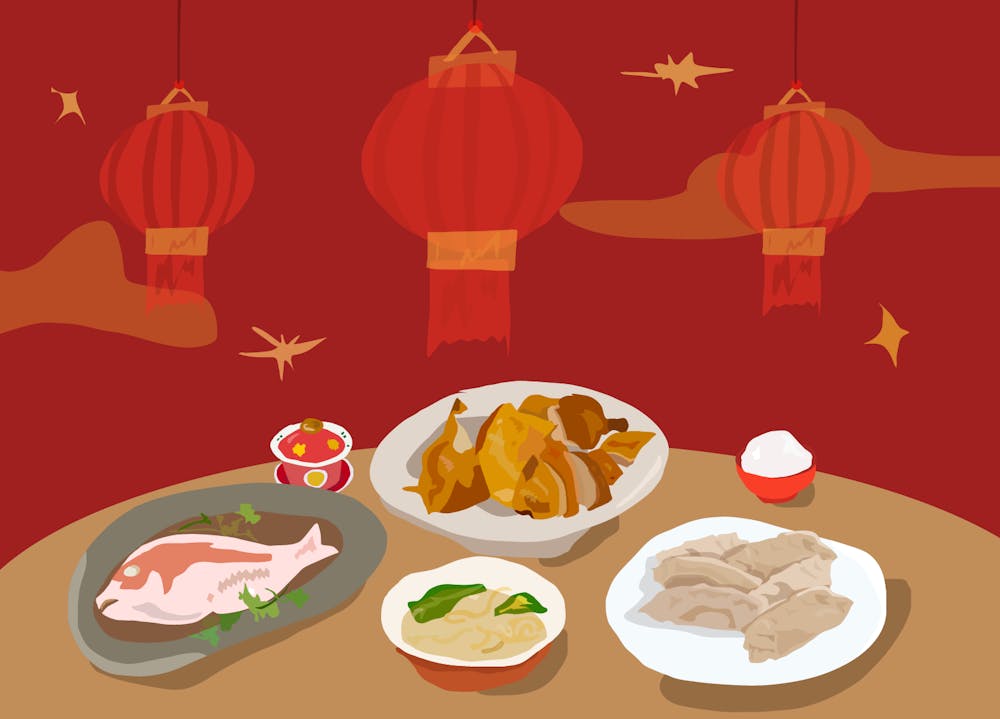
This Friday, Feb. 12, marks the start of the Lunar New Year and celebrates the arrival of the first new moon of the lunisolar calendars, which many countries and territories in Asia traditionally used. It’s a holiday of special importance for many different regions in Asia — Singapore, Hong Kong, Vietnam, Taiwan, South Korea, and Tibet are just a few of the many different regions that celebrate the Lunar New Year.
When the holiday reaches America, however, the diversity and breadth of what the Lunar New Year stands for is rudely condensed into a narrowed, monoethnic categorization — where many refer to the Lunar New Year specifically as the Chinese New Year and carelessly throw the terms around. Yet defining Lunar New Year this way is disrespectful to the diverse set of Asian regions that celebrate the holiday.
Referring to and understanding the Lunar New Year as purely the Chinese New Year is also disrespectful to the Asian American community; it masks the heterogeneous nature of the Asian American identity.
To not care about the subtle differences and then mindlessly interchange the two terms is to impose the privileges of being a racial majority onto another racial and ethnic group; the Asian American diaspora is crudely seen as a homogenous group of just “Asians." By ignorantly adhering to the characterization of the Lunar New Year as purely the Chinese New Year, one molds the Asian American identity into sloppy caricatures that remain wholly unrepresentative of what the Asian American identity really stands for.
Rather than a monolithic one, the Asian American identity is a celebration of “fluctuating composition of differences, intersections, and incommensurabilities.” It is a heterogeneous entity incredibly diverse and dynamic — not just in ethnic origins but also in gender and sexual and socioeconomic backgrounds.
Ignoring and/or suppressing such differences among the Asian American community is dangerous because it underscores the hybridity of what it means to be Asian American, which then inadvertently supports the racist structures and systems that seek to oppress Asian Americans as one homogenous group. South Korean, Filipino, and Vietnamese Americans alike are all offhandedly thought of and referred to as Chinese, which devalues the significance and importance of each unique ethnicity, culture, and origin.
"The Walking Dead” and “Minari” actor, Steven Yeun, in a recent interview with The New York Times, shared a fitting statement: “Sometimes I wonder if the Asian American experience is what it’s like when you’re thinking about everyone else, but nobody else is thinking about you.”
When Asian Americans are identified, thought of, and interacted with as one generalized group, it is an immense disservice to the Asian American lived experience. It’s this ignorance manifested in systemic institutions that has led to the invisibility of an entire diaspora, as Yeun describes. Something as simple as referring to the Lunar New Year as the Chinese New Year, for example, is a seemingly innocent display of ignorance, born from one’s own racial and ethnic privilege, that helps to reinforce the homogenization of Asian Americans and erase our divergent identities.
So as the Lunar New Year approaches, consider first the weight and implication behind your words before saying them. Remember the importance of the Lunar New Year and uplift all different and unique Asian identities equally. There’s nothing wrong with celebrating the Chinese New Year if you are specifically referring to the Chinese practices and customs, but generalizing all Asian origins and experiences to one is harmful. As this Friday approaches, celebrate the Lunar New Year with greater awareness of and respect for the diverse set of Asian regions and cultures from which the holiday originated.
LARK YAN is a College junior from Toledo, Ohio studying philosophy, politics, and economics. Her email is larkyan@sas.upenn.edu.
The Daily Pennsylvanian is an independent, student-run newspaper. Please consider making a donation to support the coverage that shapes the University. Your generosity ensures a future of strong journalism at Penn.
Donate







